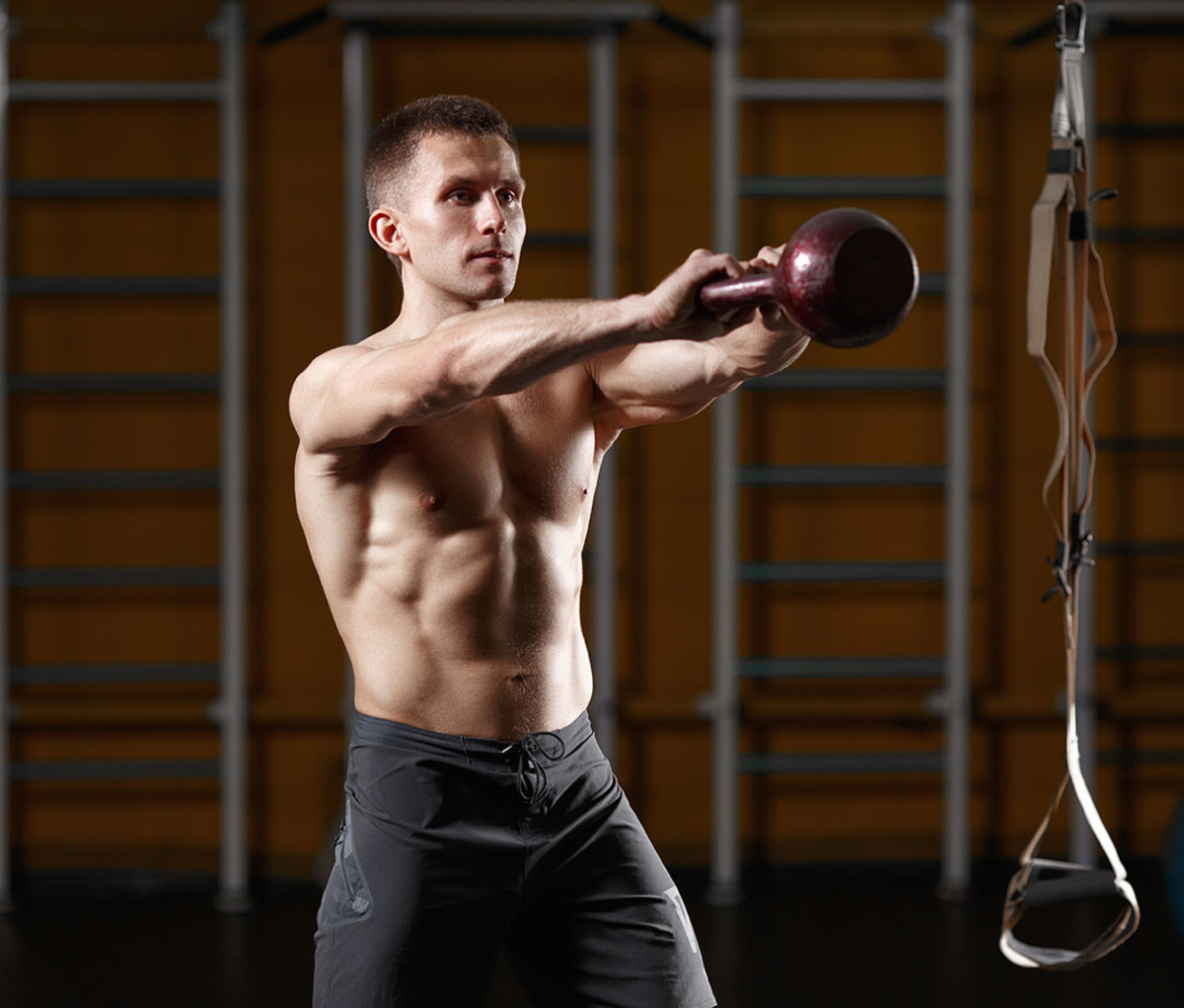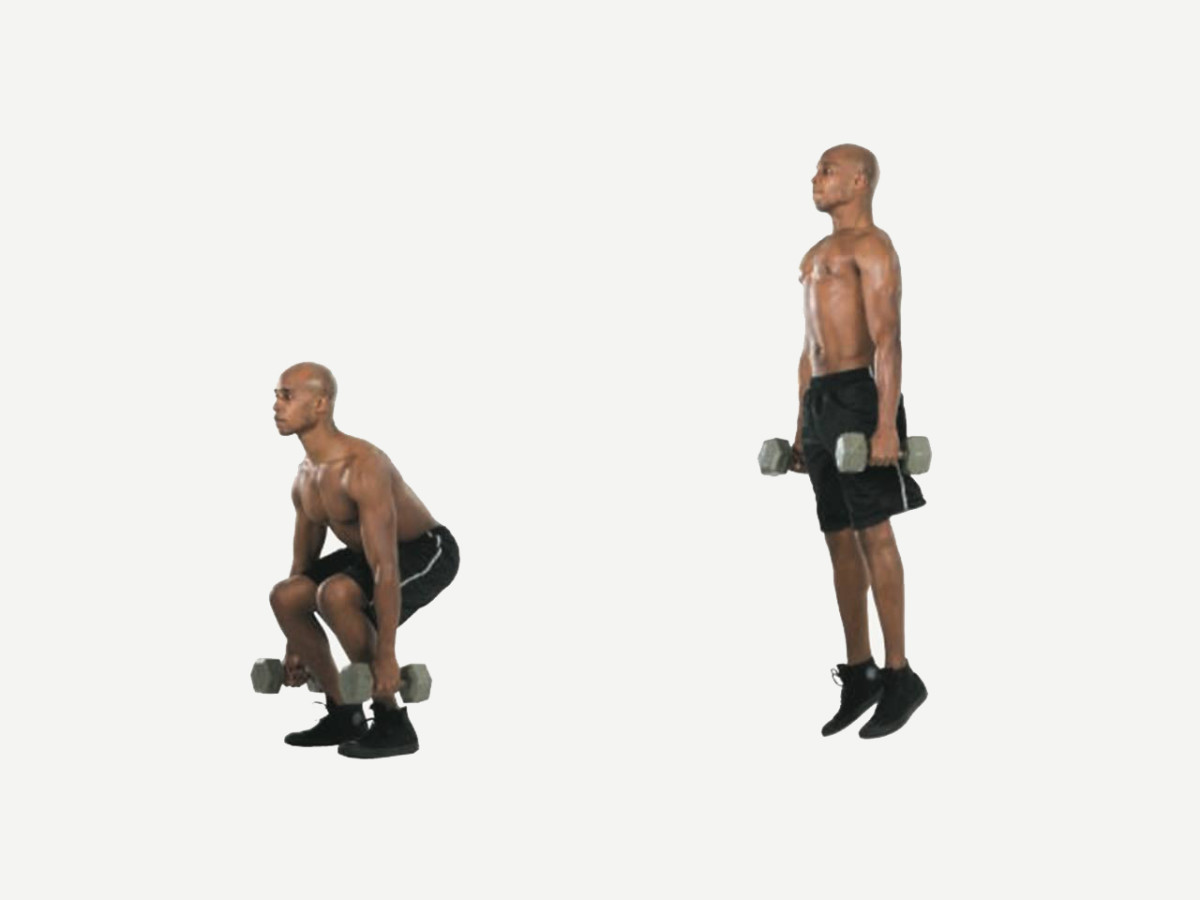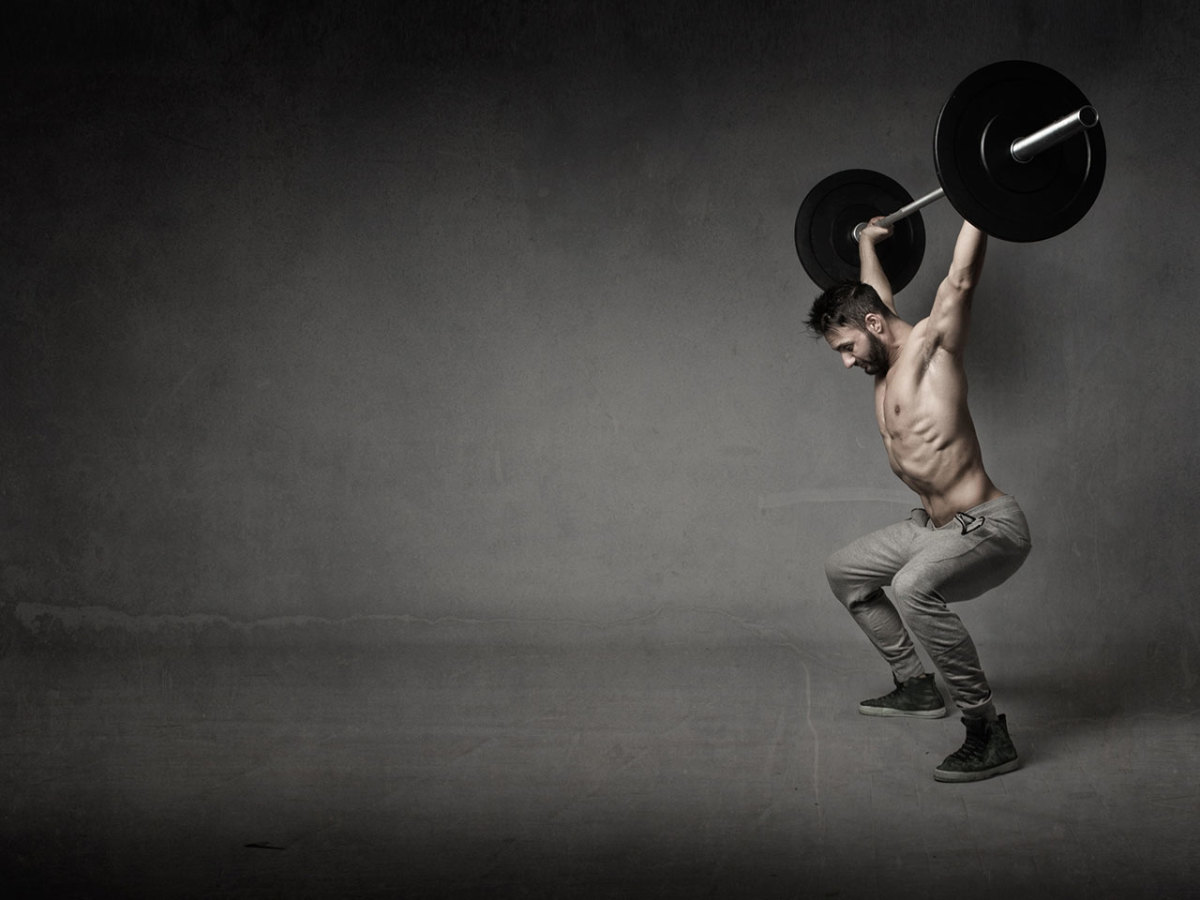High-intensity interval training, or HIIT, is an insanely efficient way to build muscle, improve conditioning, and score a killer total-body workout in no time flat. And good news: You may already be doing some of the following moves—the five best HIIT exercises of all time—as part of your current training program.
It’s just that you’re probably not doing them the right way. What do we mean by that? Many HIIT newbies mistake the first “I” in HIIT with an “E”: endurance. They quickly do bodyweight moves until form falls apart, then rest for a few seconds before going back at it—with quickly deteriorating levels of intensity and technique.
Yes, exercising this way will burn calories, but it won’t effectively build power, increase muscle, or work your body all that differently in the long run, explains Tony Gentilcore, C.S.C.S., strength coach and owner of CORE training studio outside Boston.
Compare that to true intensity, which isn’t just about going hard. It’s about going so hard that you tap into anaerobic metabolism and put your size-yielding, fast-twitch muscle fibers to good use.
Physiologically, neither has much staying power. (This is why exercise intensity always predicts duration.) After about 30 seconds, sometimes less, you hit fatigue and have to fully rest. That rest is what allows you to hit every interval with everything you’ve got. As a result, you get the most out of them and manage more results logging fewer minutes of actual work.
“The quality of the motion and technique is more important than duration,” says Gentilcore, who explains that when he programs HIIT workouts for his clients, he focuses on performing maximal efforts for as little as three to five reps.
Speaking of technique, it’s worth mentioning that the most intense exercises are also the most advanced. After all, to get the entire body’s musculature working and producing high power outputs, you have to coordinate an extensive array of movements and technical cues. You also have to move very challenging loads.
Both require a solid foundation of both strength and exercise form proficiency. For that reason, it’s important for HIIT beginners to progress to these moves by first honing their fundamental exercises, including deadlifts, squats, lunges, and overhead presses.
Ready to get going? To help you dial up the intensity of your workouts, here are five of the best HIIT exercises of all time. Consider adding one or more to your existing workouts, soon after your warmup and activation drills, or put them all together for a fierce total-body routine.
1. Kettlebell Swing

Why it works: This explosive exercise works the glutes—your body’s biggest muscle group—to their max while also engaging the lats, back, shoulders, and quads.
How to do it:
- Stand with your feet between hip- and shoulder-width apart and a kettlebell on the floor in front of you. Descend into a deadlift position and grab the kettlebell.
- Squeeze your lats to firm your shoulders and brace your core. Hike the bell behind you, then drive through your heels to thrust your hips forward and stand up as tall as possible, letting momentum float the bell forward in line with your shoulders.
- Descend back into a deadlift position by allowing the weight to swing back through your legs. Return the weight back to the floor in front of you at the end of your set.
Pro Tip: At the top of the movement, the base of the kettlebell should face the wall in front of you. If the base of the kettlebell starts to raise or point toward the ceiling, go heavier!
Do 3 to 4 sets of 6 to 12 reps, resting 90 to 120 seconds between sets.
2. Weighted Jump Squat

Why it works: At some point, you’ve likely performed jump squats, which are great for training lower-body strength and power—while sending your heart rate through the roof. This version, performed with dumbbells or kettlebells, generates even higher outputs and empties the tank in shockingly few reps.
How to do it:
-
- Stand with your feet hip-width apart and a dumbbell or kettlebell in each hand, arms extended to your sides with a neutral grip. Engage your lats and brace your core.
- Keeping a tall torso, lower into a near-parallel squat. As you reach this depth, forcefully drive through your feet to jump up as high as possible, extending through the hips, knees, and ankles.
- As you approach the ground, soften your hips and knees to cushion the landing.
Pro Tip: Rather than descending right into the next rep, stand up, pause, take a breath, and reset for the next squat with a focus on rep quality.
Do 3 to 5 sets of 5 to 8 reps, resting 90 to 120 seconds between sets.
3. Clean

Why it works: This total-body movement generates some of the highest levels of power output possible. It’s foundational to the jerk, snatch, and any move that starts from a racked position.
How to do it:
- Stand with your feet hip-width apart and a barbell, dumbbell, or kettlebell in line with the balls of your feet. Descend into a deadlift to grab the weight with both hands. Engage your lats and brace your core.
- Drive through your legs to quickly stand, extending through your hips, knees, and ankles to propel the weight vertically in front of you. As you reach full extension through your legs, pull through your arms and rotate your elbows so the weight comes to rest in front of your shoulders.
- As it approaches your shoulders, soften into a quarter squat to catch the weight. Stand up, pause, lower the weight in front of your hips, then descend back into a deadlift to return the weight to the floor.
Pro Tip: Grip strength is likely to be a limiting factor with dumbbells and kettlebells, meaning barbells will allow you to use higher weights and complete higher amounts of work with each rep.
Do 4 to 6 sets of 3 to 6 reps, resting 2 to 3 minutes between sets.
4. Snatch

Why it works: A variation on the clean, this HIIT exercise involves even more total-body muscle by integrating an overhead pressing component.
How to do it:
- Stand with your feet hip-width apart and a barbell, dumbbells, or kettlebells in line with the balls of your feet. Descend into a deadlift to grab the weight(s) with both hands. Engage your lats and brace your core for a strong torso position.
- Drive through your legs to quickly stand, extending through your hips, knees, and ankles to propel the weight vertically in front of you. As you reach full extension, shrug your shoulders, pull through your arms, rotate your elbows toward the floor, and extend your arms overhead. As the weight approaches maximum height, lower into a quarter squat so you end the move with your arms fully extended and weight directly above your ears.
- Pause, then lower the weight in front of your hips, then descend back into a deadlift to return the weight to the floor.
Pro Tip: Your shoulder strength and mobility are limiting factors here. Only perform this exercise if you have healthy shoulders, and always use a lighter weight than you do with cleans.
Do 4 to 6 sets of 3 to 6 reps, resting 2 to 3 minutes between sets.
5. Push Press

Why it works: This may look exclusively like an upper-body exercise—and make no mistake, your shoulders and triceps thank you—but it actually fries your glutes and core too.
How to do it:
- Standing with your feet hip-width apart, hold a barbell, dumbbell, or kettlebell in front of your shoulders in a rack position. Brace your core. Keeping an upright torso, quickly lower into quarter squat (or lower if you can), then forcefully drive through your legs to help your shoulders press the weight overhead.
- The weight should end directly in line with your ears with your arms fully extended. Pause, then lower the weight to the front of your shoulders, softening your knees to cushion the landing.
Pro Tip: If you’re really short on time, try performing a clean to push press. Just know that you can clean more weight than you can push press.
Do 3 to 5 sets of 6 to 8 reps, resting 60 to 90 seconds between sets.
from Men's Journal https://ift.tt/3g8UZAk
via IFTTT











0 comments:
Post a Comment